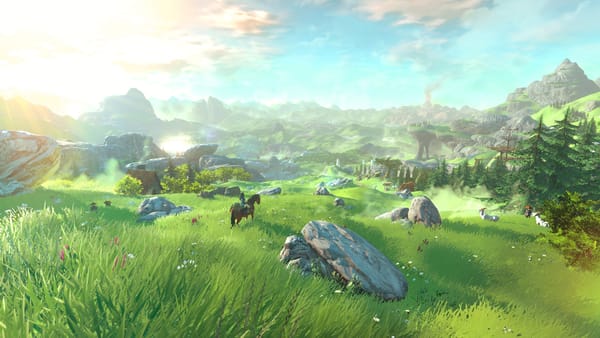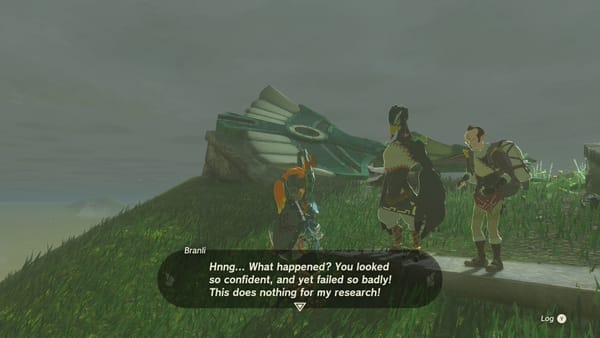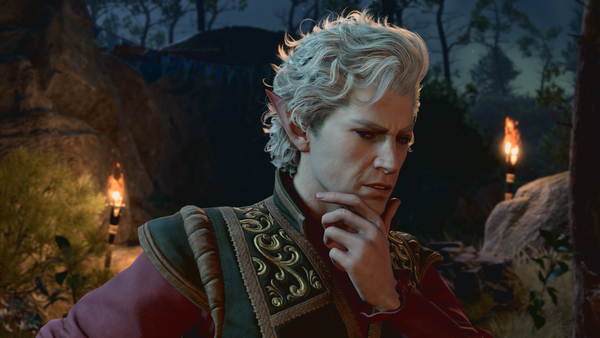#183: Bargain hunt
On the troubling implications of our endless quest for a deal.
Hit Points often writes — a little too often, perhaps — about how overwhelmed we are these days with things to play. Between our full-price purchases, subscription catalogues, freebies and impulse buys in digital sales, I reckon I and most of you reading this could stop buying games today and still have some unplayed titles in our collections in a decade’s time. We have never had it so good, is what I’m saying. But for some people, it is still not enough. There is always another game to buy, another bargain to be had.
Last Friday Thunder Lotus, developer of the well-regarded Spiritfarer, announced it had changed its game’s price in several territories on Steam. The changes, which the studio says are in line with Valve’s own recommendations, disproportionately impact players in poorer countries. The US price is unchanged; the UK one is up a shade over 5%. But in Turkey, Spiritfarer now costs more than five times as much as it did a week ago. In Argentina, the price has risen more than sixfold.
These changes have little to do with exchange-rate fluctuations, or the global economic tumult; they are instead designed to thwart bargain hunters, who use VPNs or other workarounds to change their location to whichever struggling far-off economy is selling Hot New Game X for the cheapest price. Evidently Turkey and Argentina were hot pretend destinations for people who liked the look of Spiritfarer, but not enough to pay full whack for it.
“We saw a huge increase in sales in your countries last year,” Thunder Lotus writes in a Steam post announcing the changes. “Something like 85% of sales coming ‘from Argentina and Turkey’ seem to be coming from people playing in other countries — people who are chasing the lowest possible price on Steam.”
I’ve seen plenty of this in the past few years — forum posts, social-media discussions and Reddit threads all about the various regional price points for some much-fancied new release — and it is not a trend that is unique to Steam. There are workarounds on console, too: you can make accounts in different regions, buy gift or points cards, or buy a download code for a game on a different country’s store. There are websites dedicated to this stuff. SteamDB is a very useful resource, generally speaking, but I’m not sure this is really necessary, or particularly helpful:

Regional pricing is a difficult subject, one I am quite sure I have no business speculating on. Much of it is about free markets, about economic theory and other things Hit Points hasn’t thought about since school, and would rather not pick up again: you price something at a figure each country’s market will bear, factoring in salaries, the cost of living, consumer demand and competitor pricing, all that. But there are plenty of region-specific variables too: take, for example, this Twitter thread from a few years ago about the historical movement of game prices in India, courtesy of Hit Points chum Rishi Alwani.
I am not about to try and unpick all of that when I’m only on the second coffee of the morning. I will simply say that, given that the average Argentinian salary is less than one-seventh of the USA’s, and that inflation in Argentina ran at over 95% last year, I can see why a game would be sold for much less in Argentina than it is in the States, and that region locking would be used to stop those in the latter from paying the prices of the former.
That said, I can also understand why players in the US would look all green-eyed at the Argentinian price and, realising that technology offers them access to it, tell Steam they have temporarily relocated to a Buenos Aires youth hostel. We all love a bargain, particularly one that lets us feel like we are getting one up on the system, flicking the Vs to the establishment as we pay Turkish prices for some hot new roguelike or whatever. It seems pretty victimless, really, in the moment. Spiritfarer just told us different.
In a way this is a natural reflection of the state of today’s game biz. We have grown so accustomed to getting games on the cheap, if not for free, that we have come to expect discounts to be the rule, not the exception. It is worth noting, I think, that during the course of 2022 Spiritfarer was on sale on Steam in the UK on 12 separate occasions, at a minimum discount of 50%. I do not blame Thunder Lotus for that: like other developers, it is simply working within the confines of an established system in a way that history suggests is effective. Everyone else varies prices across regions, and does big sales all the time. So, therefore, must you. (I do think the developer could have timed this particular move a little better, mind you: this is not a great moment to jack up the Turkish price of a game about grief.)
So that only leaves one question. Do we blame the platform holders? I… think so? Yes, I reckon we can, and should. I have no doubt that these companies know exactly where the vast majority of their players live. I do not have insight into how these store’s backends look, but I imagine it would be fairly easy to detect someone hopping over to Istanbul to buy a game and being back at their desk five minutes later. Unless I am fundamentally misunderstanding something here, it seems that the platform holders could shut down these workarounds tomorrow if they really wanted to, in such a way as to ensure legitimate VPN usage — for staying on your home country’s store after you relocate internationally, say, or to swerve an autocracy’s content restrictions — could continue. But these companies have no motivation to act. The difference between a storeowner’s share of a $5 purchase and a $30 one doesn’t even qualify as a rounding error when you measure your revenue in billions. A user is a user and a sale is a sale, and the finer details are for the little people to worry about.
As a little person — relatively speaking, I mean; please do not ask me to step on the scales to prove it — I do indeed worry. I worry about players in less fortunate countries than my own being priced out of their hobby, and about an industry that needs to become more global, and more culturally and creatively diverse, retreating to its traditional borders. I worry about piracy, and about the financial sustainability of indie studios in an industry where success get harder to come by every day.
Perhaps most of all I worry about another wedge being driven between developers and their audiences: most of the replies to Thunder Lotus’ Steam post contain spittle-flecked invective for the studio while Valve, the only party in this discussion with the ability to actually do something, barely gets a mention. I love a bargain, sure. But I love this medium, and the people and business around it, so much more. I will do my best to remember that the next time I’m shopping around for the best deal on a game I like the look of, and would strongly encourage you to do the same.
MAILBAG!
Some great responses to last week’s editions, which looked at the troubled state of live services on console and PC, and the death of console generations. Herewith some highlights.
- “I ended up burning out on games like Destiny, Overwatch and ESO,” says Callum in the comments of #181. “What started off as a nice way to regularly catch up with friends soon became a balancing act of trying to schedule multiple online ‘commitments’ around work, a home life and in-person socialising. It began to blur the line between hobby and chore, and I realised I was switching my console on out of obligation, rather than because I wanted to. I don’t regret the time I spent on those games, but since leaving them behind I’ve not had any urge to go back to them. I feel like my time with that side of gaming is gone for good.” I was nodding along to this despite my ongoing Destiny habit; that aside, these games are largely things I used to do. I’m not about to take up smoking again, eh. Same energy.
- Edd Hewett writes in response to my having learned that Hit Points is read in 103 countries around the world, and 47 US states. “Cannot un-picture Hit Points as a Plague Inc contagion now,” he says. “Absolutely got to get into Greenland first before mutating for maximum virality, although Madagascar’s always a tricky one to reach as well.” Hang on a minute. Just retracting everything I wrote up top now I’ve realised what canny VPN usage could do for Hit Points’ global reach. Greenland here we come!
- “I’ve been resisting the urge to buy an OLED Switch since Metroid Dread came out,” says Pete H in the lovely Hit Points Discord. “I now fear this edition (and some new Zelda game that might possibly be coming out soon) have finally tipped me over the edge.” Very sorry about that, Pete, and everyone else who said the same about Friday’s edition. It really is a lovely thing, though, the OLED.
That’ll do! Leave a comment, jump in yon Discord or reply to this here email if you’d like to weigh in. No pressure, mind. This isn’t Web 2.0, after all.
MORE!
- Microsoft has tried and failed to explain away its admission in a regulatory filing that being on Game Pass harms game sales, despite Phil Spencer’s previous claims to the contrary. “Each game is unique,” the company cooed in a statement. “We work closely with creators to build a custom program to reflect what they need, ensure they are compensated financially for their participation in the service, and allow room for creativity and innovation.” Those are certainly some words someone has typed, though I’m not entirely sure what they’re supposed to be about.
- Fun mixed messages from China. Regulators cleared 87 new games for release in February, suggesting that the widespread crackdown the nation’s game industry has endured over the past couple of years may finally be at an end. But! A trade body has since called for tighter restrictions on minors’ gaming habits. Oh.
- The original Metroid Prime developers have been omitted from the remaster’s credits. Why are we doing this again? Will it ever end? Please just credit people who work on your thing.
- I meant to share this last week, but here’s a big interview with John Carmack talking about his research into artificial general intelligence. Dear god he’s going to kill us all, isn’t he. Fair enough.
- EA’s plan for life after FIFA is beginning to take shape, with reports that it is on the brink of agreeing a £500m licensing deal with the Premier League.
- Sending a loving, tender embrace to Martin Robinson, one of the great Hit Points chums, who is leaving his role as editor-in-chief of Eurogamer at the end of the week. If you fancy assuming control of his big chair then you can apply for the job here (though successful applicants should insist on a thorough deep clean for said chair before their start date).
- Dead Island 2, first announced in 1972 and delayed 44 times since (subs please check) has had its release date brought forward by a week. The nailed-on Edge 5 will now release on April 21.
There we go! I hope today’s edition has struck a chord. Moreover, I hope it makes sense. It’s half term and the children are rattling around at top speed and high volume. Concentration is rather hard to come by.
If this has resonated with you, perhaps I might be able to persuade you to support Hit Points financially? A paid subscription costs just £4 per month and unlocks even more of my nonsense: at least one extra edition per week, plus access to the full archive, including the longform interview series Max HP. Go on. Please?
See you soon!





